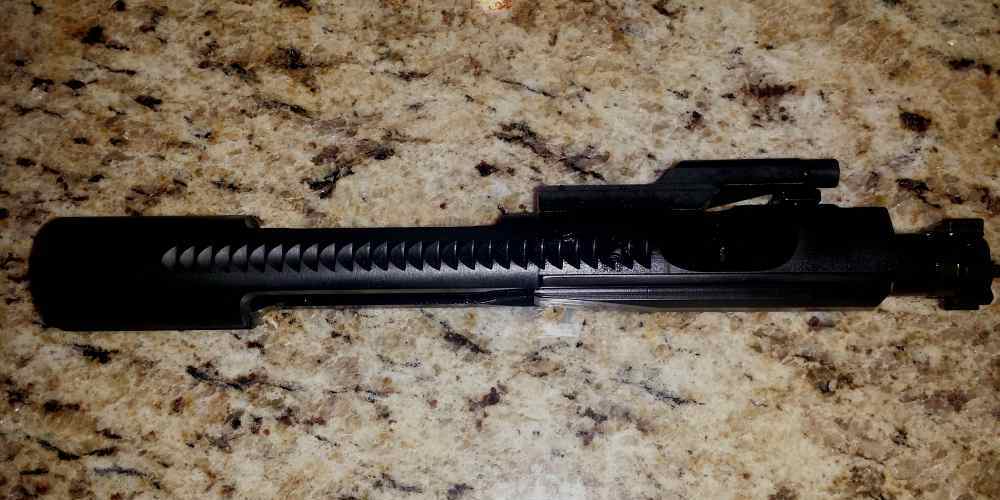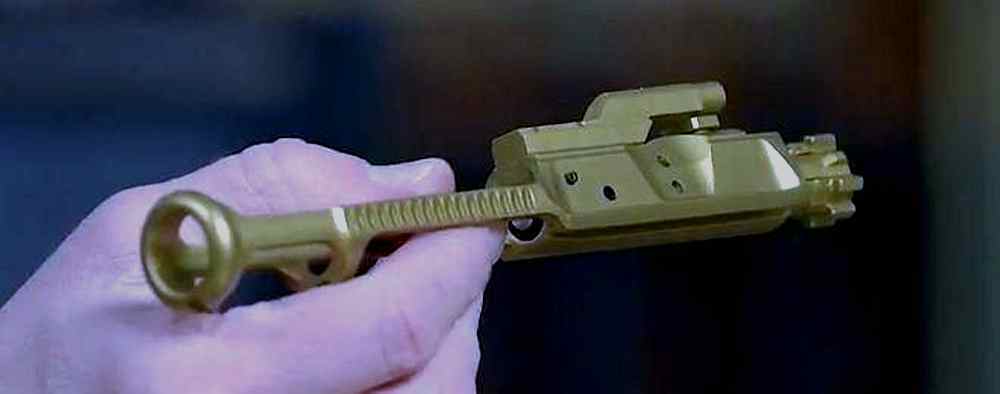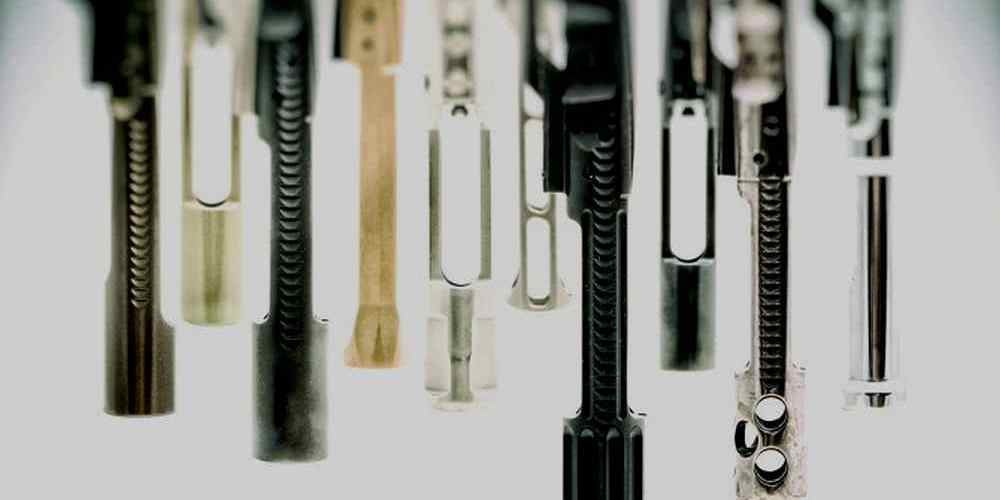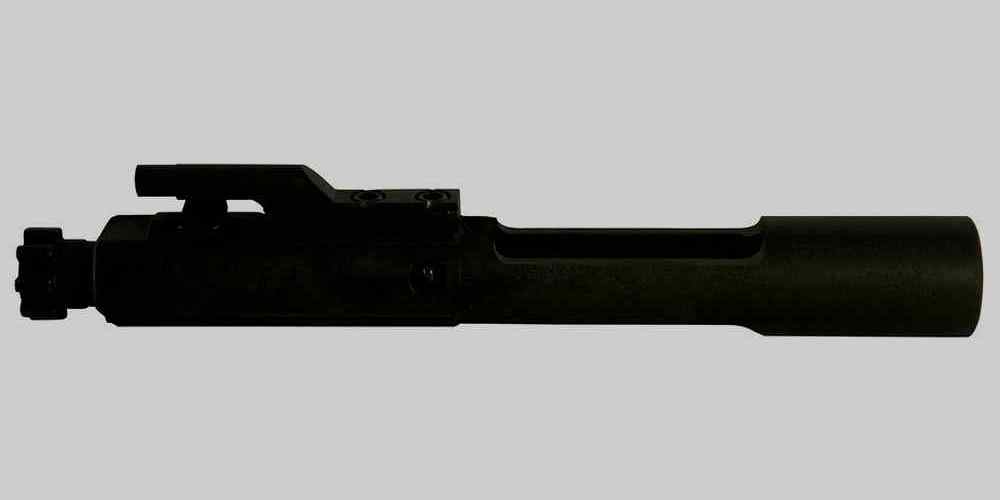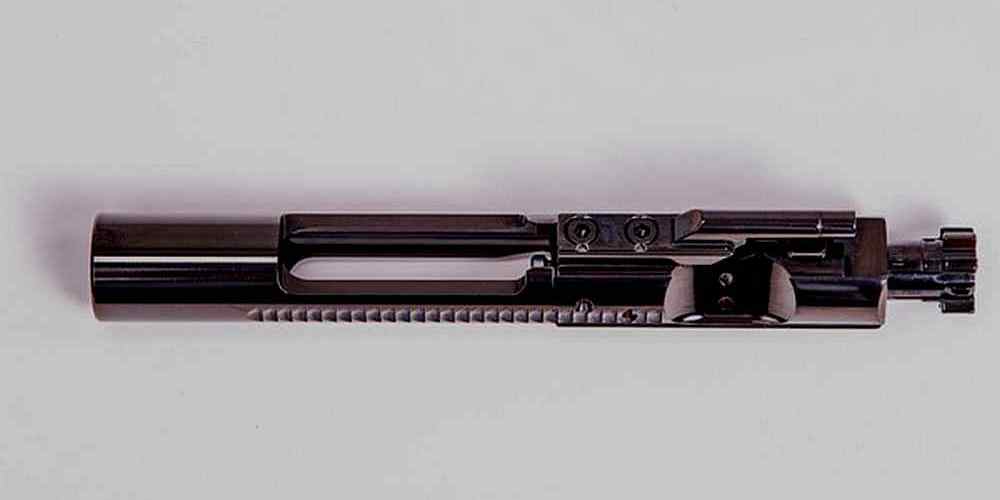“Ensuring the safety and reliability of your AR15 BCG with Magnetic Particle Inspection.”
Benefits of Magnetic Particle Inspection for AR15 BCG
When it comes to ensuring the reliability and safety of your AR15, one component that you should pay close attention to is the bolt carrier group (BCG). The BCG is a critical part of the AR15 that plays a key role in the functioning of the firearm. To ensure that your AR15 BCG is free from defects and flaws that could compromise its performance, one important process to consider is magnetic particle inspection (MPI).
MPI is a non-destructive testing method that is commonly used in the aerospace, automotive, and firearms industries to detect surface and subsurface flaws in ferromagnetic materials. This process involves magnetizing the part being inspected and applying a magnetic particle solution to the surface. Any defects or cracks in the material will cause the magnetic particles to gather at the flaw, making it visible under ultraviolet light.
One of the key benefits of MPI for AR15 BCG is its ability to detect flaws that may not be visible to the naked eye. Even small cracks or defects in the BCG can lead to catastrophic failure during use, putting the shooter at risk of injury. By using MPI to inspect the BCG, you can identify any potential issues early on and take corrective action before they become a serious problem.
Another advantage of MPI for AR15 BCG is its high level of sensitivity. This testing method can detect flaws as small as a few microns in size, ensuring that even the tiniest defects are identified. This level of sensitivity is crucial for ensuring the safety and reliability of your AR15, especially if you rely on it for self-defense or competitive shooting.
In addition to its sensitivity, MPI is also a fast and cost-effective testing method. The process can be completed relatively quickly, allowing you to inspect multiple BCGs in a short amount of time. This efficiency can help you save time and money while still ensuring the quality of your AR15 BCG.
Furthermore, MPI is a versatile testing method that can be used on a wide range of materials and part sizes. Whether your AR15 BCG is made of steel, stainless steel, or another ferromagnetic material, MPI can be used to inspect it for flaws. This flexibility makes MPI a valuable tool for manufacturers, gunsmiths, and firearm enthusiasts who want to ensure the quality of their AR15 BCG.
In conclusion, magnetic particle inspection is a critical process for ensuring the safety and reliability of your AR15 BCG. By using MPI to inspect your BCG, you can detect flaws that may not be visible to the naked eye, ensure a high level of sensitivity in flaw detection, and benefit from a fast and cost-effective testing method. Whether you are a manufacturer, gunsmith, or firearm enthusiast, MPI is a valuable tool that can help you maintain the quality of your AR15 BCG and ensure the performance of your firearm.
How Magnetic Particle Inspection Ensures Safety and Reliability
When it comes to firearms, safety and reliability are paramount. One crucial component of an AR15 that plays a significant role in both of these aspects is the bolt carrier group (BCG). The BCG is responsible for cycling rounds, extracting spent casings, and loading new rounds into the chamber. As such, it is essential that the BCG is free from defects that could compromise its performance.
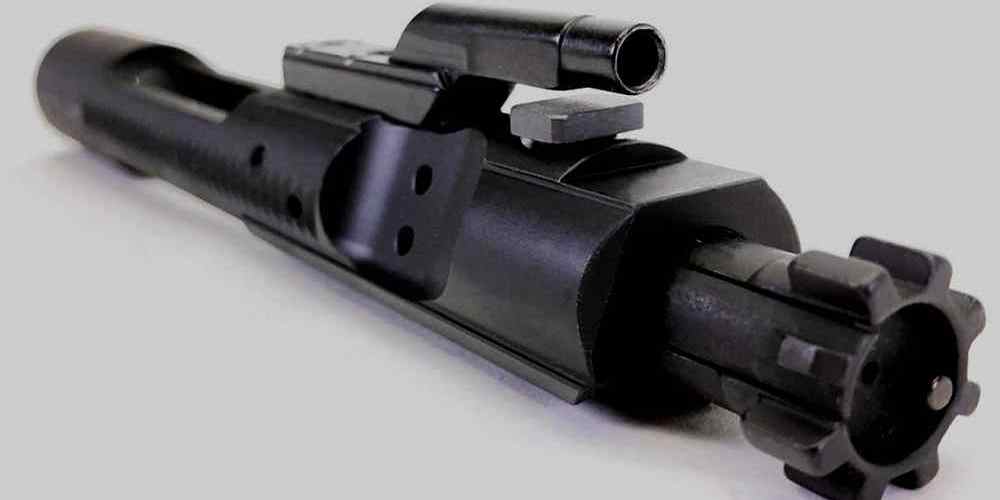
One method used to ensure the quality and integrity of a BCG is magnetic particle inspection (MPI). MPI is a non-destructive testing technique that is commonly used in the aerospace, automotive, and firearms industries to detect surface and subsurface flaws in ferromagnetic materials. By subjecting the BCG to a magnetic field and applying magnetic particles to its surface, any defects such as cracks, inclusions, or discontinuities can be easily identified.
The importance of MPI in the manufacturing and inspection of AR15 BCGs cannot be overstated. The BCG is subjected to high levels of stress and pressure during operation, and any defects in its structure could lead to catastrophic failure. By using MPI to thoroughly inspect the BCG, manufacturers can ensure that it meets the highest standards of quality and safety.
In addition to ensuring the safety of the BCG, MPI also plays a crucial role in enhancing its reliability. By detecting and eliminating defects early in the manufacturing process, manufacturers can prevent potential issues that could lead to malfunctions or failures down the line. This not only helps to improve the overall performance of the BCG but also extends its service life.
Furthermore, MPI allows manufacturers to identify defects that may not be visible to the naked eye. Even the smallest crack or inclusion in the BCG could compromise its structural integrity and performance. By using MPI to detect these defects, manufacturers can take corrective action before the BCG is put into service, thereby preventing potential safety hazards.
Overall, MPI is a vital tool in ensuring the safety and reliability of AR15 BCGs. By using this non-destructive testing technique, manufacturers can identify and eliminate defects that could compromise the performance of the BCG. This not only helps to enhance the overall quality of the BCG but also ensures the safety of the end user.
In conclusion, magnetic particle inspection is a critical step in the manufacturing and inspection of AR15 BCGs. By using this non-destructive testing technique, manufacturers can detect and eliminate defects that could compromise the safety and reliability of the BCG. Ultimately, MPI helps to ensure that the BCG meets the highest standards of quality and performance, providing peace of mind to firearm owners everywhere.
Common Defects Detected by Magnetic Particle Inspection
Magnetic Particle Inspection (MPI) is a crucial non-destructive testing method used to detect surface and near-surface defects in ferromagnetic materials, such as the bolt carrier group (BCG) of an AR15. By subjecting the BCG to a magnetic field and applying magnetic particles to the surface, any defects or discontinuities in the material will be revealed through the formation of magnetic particle indications.
One of the most common defects detected by MPI in AR15 BCGs is surface cracks. These cracks can occur due to a variety of factors, such as material fatigue, improper heat treatment, or manufacturing defects. Surface cracks can compromise the structural integrity of the BCG, leading to catastrophic failure during use. By identifying and addressing these cracks through MPI, gun owners can ensure the safety and reliability of their AR15.
Another defect that MPI can detect in AR15 BCGs is inclusions. Inclusions are non-metallic particles or impurities that are trapped within the material during the manufacturing process. These inclusions can weaken the material and create stress points that may lead to failure over time. By using MPI to identify and remove these inclusions, gun owners can prevent potential malfunctions and prolong the lifespan of their AR15.
Porosity is another common defect that can be detected by MPI in AR15 BCGs. Porosity refers to the presence of small voids or air pockets within the material, which can compromise its strength and durability. These voids can be caused by improper casting or welding processes, as well as inadequate material handling. By conducting MPI on the BCG, gun owners can identify and address any porosity issues before they escalate into more serious problems.
MPI can also detect surface grinding burns in AR15 BCGs. Grinding burns occur when excessive heat is generated during the machining process, leading to localized changes in the material structure. These burns can weaken the surface of the BCG and make it more susceptible to wear and corrosion. By using MPI to identify and address surface grinding burns, gun owners can ensure the longevity and performance of their AR15.
In conclusion, Magnetic Particle Inspection is a critical tool for detecting common defects in AR15 BCGs. By identifying and addressing issues such as surface cracks, inclusions, porosity, and surface grinding burns through MPI, gun owners can ensure the safety, reliability, and longevity of their firearms. Regular MPI inspections should be conducted on AR15 BCGs to catch any defects early and prevent potential malfunctions. By investing in MPI testing, gun owners can have peace of mind knowing that their AR15 is in optimal condition for use.
The Importance of Proper MPI Techniques for AR15 BCG
If you’re a gun enthusiast or a firearms manufacturer, you’re likely familiar with the AR15 bolt carrier group (BCG). This crucial component of the AR15 rifle is responsible for cycling rounds and ensuring the firearm functions properly. To ensure the reliability and safety of your AR15, it’s essential to pay attention to the quality of your BCG. One important aspect of BCG quality control is magnetic particle inspection (MPI).
MPI is a non-destructive testing method used to detect surface and subsurface flaws in ferromagnetic materials, such as steel. By applying a magnetic field to the material and then dusting it with magnetic particles, defects like cracks, inclusions, and other imperfections become visible under ultraviolet light. This process allows for the identification of potential weak points in the material that could lead to catastrophic failure under stress.
When it comes to the AR15 BCG, proper MPI techniques are crucial for ensuring the safety and reliability of the firearm. The BCG is subjected to high levels of stress and pressure during firing, so any defects or imperfections in the material could lead to malfunctions or even accidents. By conducting MPI on the BCG, manufacturers can identify and address any potential issues before the component is put into service.
One of the key benefits of MPI is its ability to detect flaws that may not be visible to the naked eye. Even small cracks or inclusions in the material can compromise the structural integrity of the BCG, leading to catastrophic failure. By using MPI, manufacturers can identify these defects early on and take corrective action to prevent potential safety hazards.
In addition to safety concerns, proper MPI techniques are also important for ensuring the performance and longevity of the AR15 BCG. A BCG that has been properly inspected and tested is more likely to function reliably over time, reducing the risk of malfunctions and increasing the lifespan of the firearm. By investing in quality control measures like MPI, manufacturers can improve the overall quality of their products and enhance customer satisfaction.
It’s worth noting that not all MPI techniques are created equal. Different methods and equipment can yield varying levels of accuracy and reliability in defect detection. For the AR15 BCG, it’s important to use a reputable testing facility that employs experienced technicians and state-of-the-art equipment to ensure the highest level of quality control.
In conclusion, magnetic particle inspection is a critical quality control measure for the AR15 BCG. By using MPI to detect flaws and imperfections in the material, manufacturers can ensure the safety, reliability, and performance of their firearms. Investing in proper MPI techniques is not only a smart business decision but also a responsible choice that prioritizes the safety of gun owners and enthusiasts. So, if you’re in the market for an AR15 BCG, make sure to choose a manufacturer that values quality control and uses MPI to ensure the highest standards of safety and performance.
How Magnetic Particle Inspection Can Extend the Lifespan of Your AR15 BCG
When it comes to maintaining your AR15, one of the most critical components to pay attention to is the bolt carrier group (BCG). The BCG is responsible for cycling rounds, extracting spent casings, and loading new rounds into the chamber. As such, it is subjected to high levels of stress and wear during each firing cycle. To ensure the longevity and reliability of your AR15, it is essential to properly inspect and maintain your BCG. One method that can help extend the lifespan of your BCG is magnetic particle inspection (MPI).
MPI is a non-destructive testing method used to detect surface and subsurface flaws in ferromagnetic materials, such as steel. By applying a magnetic field to the material and then dusting it with magnetic particles, any defects or cracks in the material will be revealed by the particles clustering at the flaw site. This allows for the early detection of potential issues that could lead to catastrophic failure if left unchecked.
When it comes to your AR15 BCG, MPI can be a valuable tool in identifying defects that may compromise the integrity of the component. The high-stress environment in which the BCG operates makes it susceptible to fatigue, stress corrosion, and other forms of wear and tear. By regularly inspecting your BCG using MPI, you can catch any developing issues before they escalate into more significant problems.
One of the primary benefits of MPI is its ability to detect flaws that may not be visible to the naked eye. Even small cracks or defects can compromise the structural integrity of the BCG, leading to potential malfunctions or failures during use. By using MPI to inspect your BCG, you can identify these hidden flaws and take corrective action before they become a more significant issue.
In addition to detecting flaws, MPI can also help assess the overall quality of the BCG. By examining the magnetic particle patterns on the surface of the component, you can gain insight into the manufacturing process and identify any areas of concern. This information can be used to improve quality control measures and ensure that only the highest quality BCGs are used in your AR15.
Regular MPI inspections of your AR15 BCG can help extend its lifespan and ensure reliable performance. By detecting and addressing potential issues early on, you can prevent costly repairs or replacements down the line. Additionally, by maintaining a high level of quality control, you can rest assured that your AR15 is equipped with a BCG that meets the highest standards of safety and reliability.
In conclusion, magnetic particle inspection is a valuable tool for maintaining the integrity and performance of your AR15 BCG. By using MPI to detect flaws and assess quality, you can ensure that your BCG is in top condition and ready for action. Regular inspections using MPI can help extend the lifespan of your BCG and provide peace of mind knowing that your AR15 is equipped with a reliable and safe component.





